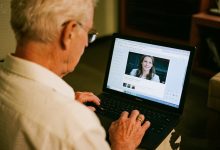The Golden Boy Who Had It All
My mom always said I was “different” from other kids. And yeah, she wasn’t wrong – but probably not in the way you’d think.
First, I was that kid. You know the type – straight A’s, valedictorian, full ride to a top university. I blazed through undergrad, got into grad school, then straight into a PhD program. By 28, I had my doctorate, ten published papers, and two books under my belt.
The second thing that made me “different”? I was what you’d politely call “husky.” Okay, fine – I was fat. Like, really fat.
But hey, I was living the American dream, right? Smart kid from a working-class family, climbing the academic ladder, job offers rolling in. I had a tenure-track position lined up at a decent university. Life was good.
Or so I thought.
When Your Body Sends You an Invoice
The last two years of my PhD were brutal. Dissertation pressure, all-nighters, living on energy drinks and takeout. Sleep? What’s that? Exercise? Who has time?
I kept telling myself it was temporary. “Just get through this defense, then I’ll get healthy.”
But my body had other plans.
It started small – stomach aches, weird bathroom issues, feeling tired all the time. I figured it was just stress. Maybe some acid reflux from all the coffee and junk food.
Then came the pain in my side. Sharp, persistent, like someone was jabbing me with a poker.
“Probably just pulled something,” I told myself. “Maybe fatty liver – I’ll eat some salads after I graduate.”
Classic mistake: ignoring your body when it’s literally screaming at you.
The Day My World Exploded
Graduation day came and went. I packed my bags, said goodbye to grad school, and headed to my new job for the mandatory health screening.
Walking into that medical center, I had this weird feeling in my gut. Not the usual anxiety – something deeper. Like when you’re watching a horror movie and you know something terrible is about to happen.
The ultrasound tech’s face said it all. That look medical professionals get when they see something they really don’t want to see.
“Your liver and spleen are significantly enlarged,” the doctor told me later. “You need to get to a real hospital. Now.”
I sat there in shock while my dad waited in the hotel room, probably wondering why I was taking so long.
How do you tell your father that instead of starting your dream job, you’re about to get the worst news of your life?
The Diagnosis That Changed Everything
Two days later, I was staring at a CT scan report that might as well have been written in blood:
“Decompensated liver cirrhosis. End-stage liver disease. Ascites present.”
For those who don’t speak medical, that translates to: “Your liver is basically done. This is really, really bad.”
I googled frantically (never a good idea with medical stuff). The results were terrifying. This wasn’t something you bounce back from. This was the kind of diagnosis that comes with phrases like “months to live” and “palliative care.”
I was 28 years old.
My dad found me crying in the hospital hallway at midnight, phone in hand, trying to figure out how to tell my family that their golden boy was dying.
“We caught it early,” he said quietly. “That’s good, right? Early treatment?”
God, I love that man.
The Long Road Down
What followed were the darkest months of my life.
While my classmates were starting careers, posting excited LinkedIn updates, and moving into their first real apartments, I was learning words like “portal hypertension” and “hepatic encephalopathy.”
The weight loss was dramatic – I dropped 60 pounds in six months. Sounds great, right? Except it was because I could barely eat without excruciating pain.
The isolation was worse than the physical symptoms. How do you explain to your successful friends that you’re not just unemployed – you’re literally dying?
“How’s the new job going?” they’d ask.
“Oh, you know… it’s fine,” I’d lie.
Because what’s the alternative? “Actually, I’m spending my days researching liver transplant survival rates and trying not to have a panic attack”?
Finding Purpose in the Darkness
Months passed. Doctor visits, medications, procedures. My parents spent every penny they had and more, driving me to specialists hours away.
I tried to stay productive, taking on some freelance writing projects. It helped – both financially and mentally. There’s something powerful about creating something when your body is falling apart.
But then things got worse. Much worse.
The fluid in my abdomen built up until I looked pregnant. My belly button herniated and eventually burst. I’m not going to describe what that was like, but let’s just say it involved an ambulance and a very long night in the ER.
“You need a liver transplant,” the surgeon told us. “Soon.”
The cost? Around $300,000.
The Kindness of Strangers (and Not-So-Strangers)
Here’s where the story could have ended badly. Working-class family, no way to afford a transplant, kid dies young – it’s a tragedy you read about in the news and forget by dinner.
But that’s not what happened.
Word got out. My professors, classmates, people I’d barely spoken to – they started a fundraising campaign. Neighbors I hadn’t seen since high school chipped in. Complete strangers donated money they probably couldn’t afford to spare.
In two weeks, we had enough.
The Wait
Getting on the transplant list is just the beginning. Then you wait. And wait. And wait some more.
Nine months in the hospital. Nine months watching other patients get their calls, get their surgeries, go home to their families.
My blood type (A) was apparently really unlucky – not many donors.
I watched roommates come and go. Some got their miracles. Others… didn’t.
My dad slept on the floor next to my bed every single night for nine months. Every. Single. Night.
On New Year’s Eve, they brought us frozen dumplings from the hospital cafeteria. My dad spread his blanket on the cold floor and wished me happy new year.
That’s when I realized: I wasn’t fighting to live for me anymore. I was fighting because I hadn’t been his son long enough yet.
The Call
March 23rd, evening shift. Dad had gone to get dinner. I was lying there, probably watching some terrible reality TV, when the transplant coordinator walked in.
“Tomorrow, 3 PM. You’re up.”
After nine months of waiting, that’s how it happened. No drama, no fanfare. Just “tomorrow, 3 PM.”
The surgery took eight and a half hours. When I woke up, my dad and sister were crying.
Not from sadness this time.
Coming Back to Life
Recovery is weird. One day you’re dying, the next day you have someone else’s liver keeping you alive. It’s humbling and terrifying and miraculous all at once.
The bills were… significant. Hospital debt, ongoing medications, follow-up care. My parents went back to work immediately – dad back to construction, mom handling everything else.
I felt useless. Here I was, PhD in hand, and my blue-collar parents were working their asses off to pay for my medical care.
The Job I Never Expected
About six months later, I was finally stable enough to think about work. My dream was to get back into academia – maybe a postdoc position to ease back in.
But life had other plans.
“The village has a temporary position,” the local official told us. “Street cleaning. Early morning and evening shifts. $120 a month for about six to nine months.”
I didn’t hesitate. “I’ll take it.”
Dad looked surprised. “You sure? It’s just… after everything you’ve accomplished…”
“Dad,” I said, “it’s work. And I’m alive to do it.”
The PhD Street Sweeper
So there I was, doctorate in hand, pushing a broom down rural streets at 6 AM.
And you know what? It was perfect.
The job was simple but not easy. Fallen leaves, animal droppings (we had a local guy who walked his sheep through town twice daily), trash that blew in from the main road.
I got good at it. Really good. You want to know the secret to efficient leaf-sweeping? Work with the wind, not against it. Sheep droppings? Get to them within 30 minutes before they cement to the pavement.
The locals got a kick out of it. “Hey, Doc!” they’d call out. “Making our streets PhD-level clean!”
Mrs. Chen from the corner store would say to her grandkids, “That’s what happens when you study hard – you get so smart you can do any job perfectly.”
What I Learned on the Streets
Here’s the thing about manual labor that nobody tells you in graduate school: it’s meditative.
No emails. No deadlines. No academic politics. Just you, a broom, and the simple satisfaction of making something clean.
The villagers treated me like family. They’d bring me tea on cold mornings, ask me to fix their phones (apparently PhD = tech support), and always made sure I knew I was valued.
“We’ve had rich folks and poor folks,” old Mr. Zhang told me one day, “but you’re our only scholar. That makes you special, doesn’t matter what job you’re doing.”
The Real Success Story
I still do freelance writing. I’m planning to apply for postdoc positions once my health is fully stable. I might even get back to that tenure-track dream someday.
But here’s what I figured out during those months with a broom in my hand:
Success isn’t about the job title or the paycheck. It’s about waking up grateful to be alive.
It’s about having work that serves your community, even if that community is just one small village.
It’s about your parents seeing you healthy and happy instead of dying in a hospital bed.
Every morning when I finished my route, I’d look up at the sunrise over the fields and think: “Mountain peaks and valleys, but the boat has passed through safely.”
I lost my dream job. I lost my health for a while. I lost my savings and probably a few years off my life from stress.
But I gained something more valuable: perspective.
The Point of It All
I’m not saying everyone should quit their corporate job to become a street sweeper. I’m not romanticizing poverty or pretending that financial stress isn’t real.
What I’m saying is this: sometimes life strips away everything you thought defined you. Your career, your health, your plans – all of it gone.
And sometimes, in that emptiness, you find out who you really are.
I’m a son who got to make his parents proud in a way I never expected.
I’m a community member who contributed something real and tangible every single day.
I’m a person who learned that dignity comes from within, not from your job description.
And most importantly, I’m someone who gets to wake up every morning and be grateful for another day.
That’s worth more than any salary, any title, any career achievement.
Trust me on this one.
The author has since returned to academic work as a postdoctoral researcher, but still volunteers for community cleanup projects in his spare time. His parents are proud of both careers.








